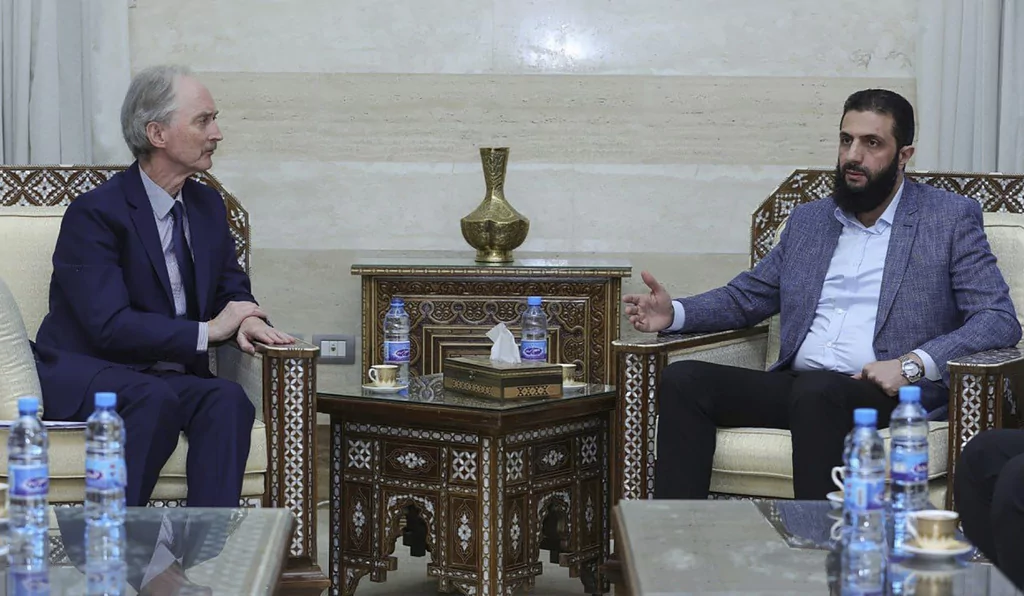
Ahmad al Sharaa, leader of the Hayat Tahrir al Sham terrorist group, has continued to soften his image after toppling the Syrian government and taking control of the country.
The leader, who sometimes goes by the militaristic pseudonym Abu Mohammed al Jolani, has been making every effort to portray himself as a reasonable and peaceable head of state. He traded military fatigues for Western business suits and bent his speeches toward the virtues of tolerance and mercy.
“Syria must remain united, and there must be a social contract between the state and all religions to guarantee social justice,” Sharaa told the Druze community, according to a Tuesday statement on the HTS Telegram account.
Sharaa has lofty goals to accomplish in the new Syria and he needs the West’s support.

He is hoping to facilitate the return of millions of Syrian refugees who fled the country out of fear of former President Bashar Assad’s regime. He is also requesting that various sanctions placed on Syria as punishment for human rights abuses be lifted now that Assad’s government has been dismantled.
“They should lift all restrictions, which were imposed on the flogger and the victim — the flogger is gone now,” Sharaa said in an interview with London’s the Times, referring to Assad. “This issue is not up for negotiation.”
Western powers are, in some ways, happy to see the end of Assad’s regime, which was haunted by the repeated use of chemical weapons against its own people and mass violation of human rights.
However, those same countries are still less than enthusiastic about the new boss.
HTS was founded as an al Qaeda affiliate branch that eventually split from the wider Islamic radical network. It is still designated as a terrorist group by the United States and many of its allies.
Sharaa seems to understand that a rebrand is necessary for the various rebel factions that contributed to the revolution.
He is now promising to dismantle these groups, promising that “fighters will be prepared to join the Ministry of Defense and everyone will be subject to the law.”
The new leader granted amnesty to soldiers of the Syrian Arab Army who served under the old regime as a display of mercy. He has also issued a communique ordering rebel forces not to bother women over dress codes.
Sharaa met with British diplomats in Damascus this week to begin discussions of how the new Syria will fit into the global community. He also met Monday with Geir Pedersen, a United Nations special envoy.
International observers hope that Sharaa and his government’s stated vision for a modern, democratic Syria is genuine. However, recent events in Afghanistan have tempered expectations for a transition from Islamic extremism to egalitarian tolerance.
CLICK HERE TO READ MORE FROM THE WASHINGTON EXAMINER
The Taliban retook control of Afghanistan in 2021 through a similarly rapid and violent military campaign that overthrew established government authorities. The new leaders promised a series of reforms to soften Islamic social teaching and expand human rights.
Within months, the terrorist group broke the majority of those promises — pulling women out of the education system, failing to stop illicit narcotic production, and continuing unilateral detainment of suspected opposition.







